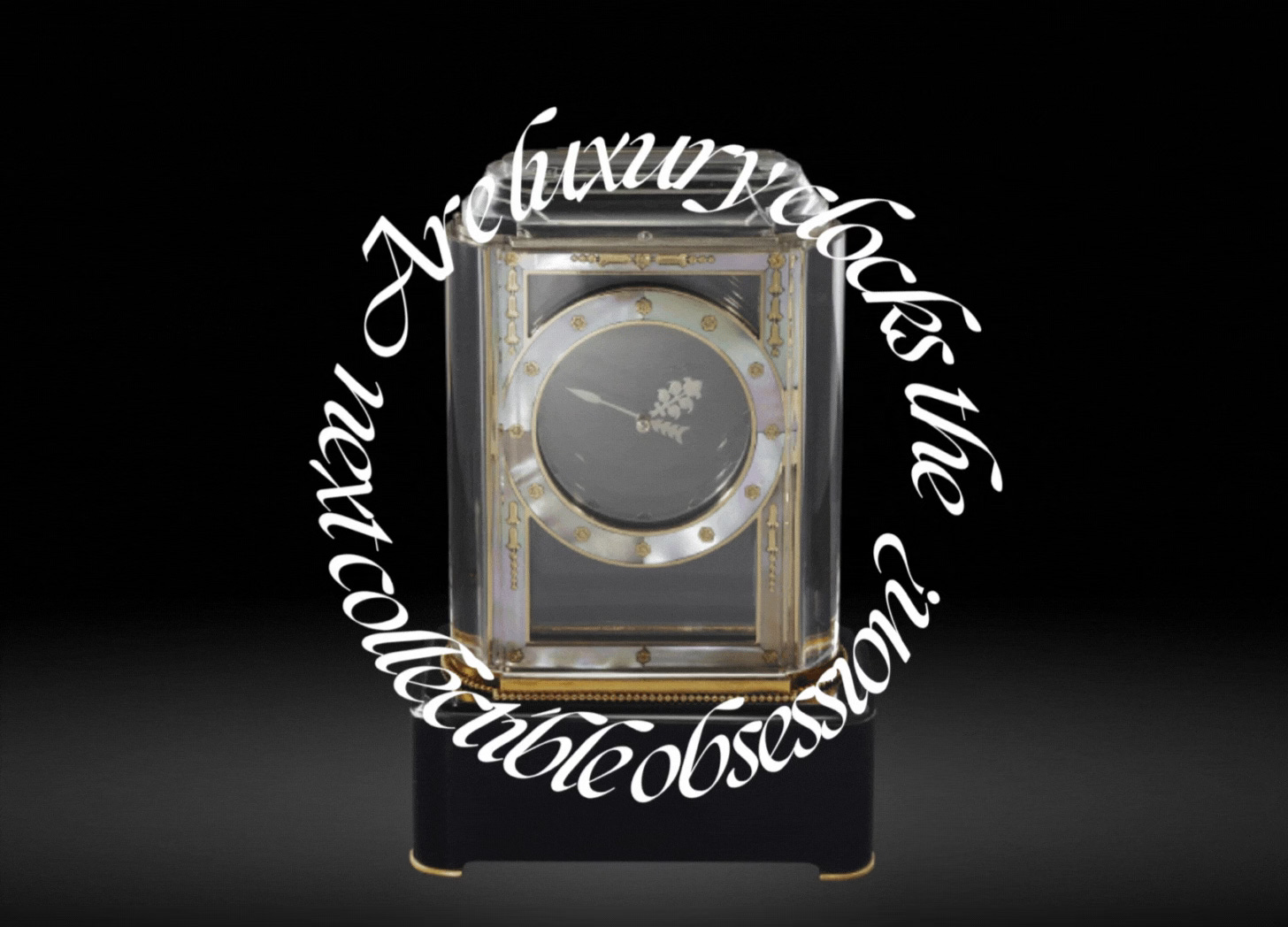Are luxury clocks the next collectible obsession?
Phillips announced their plans to auction off nine Cartier clocks during the 2025 auction season.
Watches have graced red-carpet wrists, auction catalogues, and countless flex-y Instagram posts. But while collectors have been bidding each other into oblivion over vintage Daytonas and elusive Royal Oaks, a quieter — and arguably more luxury — category is starting to tick louder: clocks. Yes, clocks.
Spring might mean Cherry Blossoms in Japan, but to the watch world, it means one thing and only thing only – auction season. Phillips announced their plan to auction off nine prestigious Cartier clocks across auctions in Geneva and Hong Kong (a growing region for their auctions). Clocks are appreciated not just for their mechanical wizardry, but for what they represent — craftsmanship, balance, artistry, and often, a hint of good fortune.
Leading this horological renaissance? Unsurprisingly: Cartier. The maison’s clocks — think lacquered finishes, mystery dials, and just the right amount of Art Deco drama — are becoming hot property. Meet a Cartier collector or expert and you’ll definitely hear the term “mystery clock.” These clocks are given the name because they are made with such precision, and obviously magic, that the hands almost look as if they are floating. It’s said that when Cartier made the first ever mystery clock over 100 years ago, they had a full team dedicated to figuring our how to make it.
So, what’s behind this shift from wrist to room? It’s part of a broader trend: luxury is coming home. Post-pandemic, many collectors started looking inward — literally. The desire for beautiful things that live in your space, that you can admire while sipping espresso at your desk (and not just during a rare dinner out), is very real. Jaeger-LeCoultre and Vacheron Constantin are among other brands bringing haute horlogerie to your mantelpiece.
So, are clocks the new watches? Not quite. But they are the perfect next obsession for the seasoned collector who has everything — or at least thinks they do



